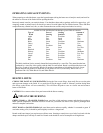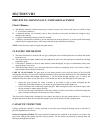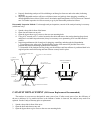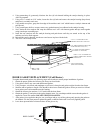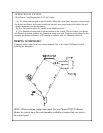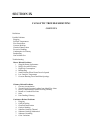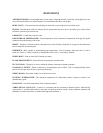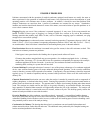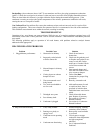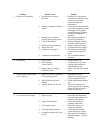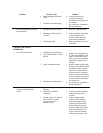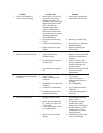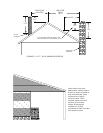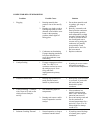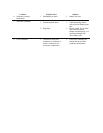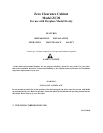
Backpuffing-A hot combustor (above 1400
o
F) can sometimes act like a glow plug (spontaneous combustion
ignitor). Usually the wood gas-to-air mixture is either too lean or too rich to form a highly flammable mixture.
There are times when this mixture is just right within the firebox during the normal burning process. If the
combustor is running at or above the ignition temperature of the mixture, spontaneous combustion will result,
causing the stove to vent puffs of smoke.
Non-Uniform Flow-Non-uniform flow causes the combustor to heat and cool unevenly and is a result of fuel-
loading configuration. This occurs when the flow pattern of the fire is concentrated on one side of the combustor.
This condition causes thermal stress within the ceramic, resulting in cracking.
TROUBLESHOOTING
Operation of any wood heater can create problems. While the use of a catalytic-combustor equipped stove will
substantially lessen some of these problems—such as creosote formation—other traditional wood-heater problems
may remain.
The following guidelines apply to operation of all wood heaters, with problems related to catalytic heaters
addressed where appropriate.
HEATER RELATED PROBLEMS
Problem
1. Sluggish heater performance
2. Drop in Overall Efficiency
Solution
1. Check for and remove
obstruction
2. Check trim kit gasketing seal
to fireplace and gasket as nec-
essary to seal unit. Gasket
under stove if needed. Check
seal of direct connect and
correct.
3. Open manual damper and
wire shut with stainless steel
wire or remove damper.
4. Follow New Buck
instructions for proper firing
procedures.
5. Burn dry, seasoned wood
6. Add small amounts of wood
to small coal beds. Once a
good bed of coals has been
established more wood can be
added.
7. Check all movable heater
parts. Replace if necessary.
8. See section in “Chimney-
Related Problems”
9. See section in “Combustor-
Related Problems”
1. Weather stripping, caulking,
insulation, storm windows
2. Burn quality wood available
in your area
3. Close bypass or engage
combustor when temperatures
are high enough and
stabilized
4. See “Combustor-Related
Problems”
Possible Cause
1. Obstruction in chimney
2. Improperly sealed trim kit
or direct connect kit
3. Manual damper in chimney
is closed
4. Closing bypass or exhaust
damper too soon
5. Wet or unseasoned wood
being burned
6. Too much wood added to
too few coals
7. Dislodged stove parts
8. Poor chimney draft
9. Combustor is plugged
1. Cold, windy weather
2. Burning wet, pitchy or
spongy wood
3. Combustor not in operating
mode
4. Combustor not functioning



